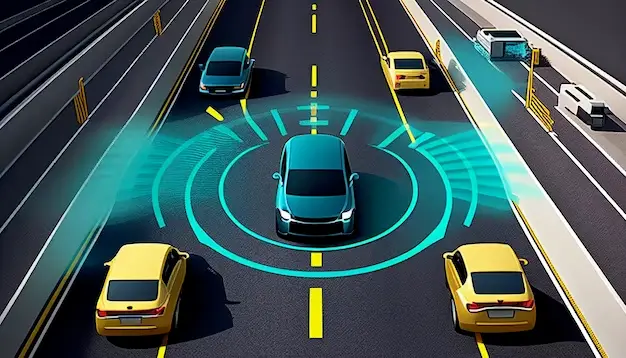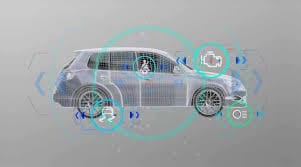Artificial Intelligence and the Future of Electric Vehicles.
In recent years, two technological marvels have been steadily reshaping the world: Artificial Intelligence (AI) and Electric Vehicles (EVs).


In recent years, two technological marvels have been steadily reshaping the world: Artificial Intelligence (AI) and Electric Vehicles (EVs).
While each has made significant strides independently, their convergence holds the promise of transforming transportation in unprecedented ways.
As AI continues to advance, its integration into EVs opens up a realm of possibilities, from enhancing efficiency and safety to revolutionizing the entire automotive industry.
The Marriage of AI and EVs:
Electric vehicles have gained traction as environmentally friendly alternatives to traditional fossil fuel-powered cars, offering reduced emissions and lower operating costs.
Simultaneously, AI has permeated various industries, demonstrating its prowess in automation, data analysis, and decision-making.
The synergy between AI and EVs is poised to redefine the future of transportation, amplifying the capabilities of electric vehicles beyond their current limitations.

Enhanced Efficiency:
One of the most significant advantages of integrating AI into electric vehicles is the potential for enhanced efficiency.
AI algorithms can optimize various aspects of EV performance, such as battery management, energy consumption, and route planning.
By analyzing driving patterns, traffic conditions, and terrain characteristics in real time, AI can adjust power usage, maximize range, and minimize charging times, thus optimizing the overall efficiency of electric vehicles.
Predictive Maintenance:
AI-powered predictive maintenance is another game-changer in the realm of electric vehicles.
By monitoring numerous vehicle parameters and identifying patterns indicative of potential component failures, AI algorithms can preemptively detect issues before they escalate, reducing downtime and maintenance costs.
This proactive approach not only enhances vehicle reliability but also improves safety and extends the lifespan of EVs.
Autonomous Driving:
While the concept of autonomous driving is not exclusive to electric vehicles, the integration of AI accelerates its realization.
AI-driven autonomous systems enable EVs to perceive their surroundings, make complex decisions, and navigate diverse environments without human intervention.
This technology has the potential to revolutionize transportation by enhancing safety, alleviating traffic congestion, and enabling new mobility solutions such as ride-sharing and on-demand transportation services.

Smart Grid Integration:
The proliferation of electric vehicles poses challenges to the existing electrical grid infrastructure but also presents opportunities for innovation.
AI plays a crucial role in managing the integration of EV charging with the grid, optimizing charging schedules to balance demand, minimizing grid stress, and leveraging renewable energy sources effectively.
Through smart grid integration, AI-equipped electric vehicles can contribute to grid stability, energy resilience, and the transition to a sustainable energy ecosystem.
Challenges and Considerations:
Despite the promising prospects, the widespread adoption of AI in electric vehicles is not without challenges.
Concerns regarding data privacy, cybersecurity, regulatory compliance, and ethical implications must be addressed to ensure the responsible development and deployment of AI-driven EV technologies.
Additionally, disparities in access to advanced AI capabilities and EV infrastructure highlight the importance of equitable deployment strategies to prevent exacerbating socioeconomic inequalities.
Conclusion:
The convergence of Artificial Intelligence and Electric Vehicles heralds a new era of transportation, characterized by unprecedented efficiency, safety, and sustainability.
As AI continues to evolve and permeate every facet of electric vehicle technology, the boundaries of possibility expand, offering glimpses of a future where transportation is not only cleaner and smarter but also more accessible and inclusive.
Embracing this convergence requires collaboration, innovation, and a commitment to harnessing the transformative power of AI to shape a brighter future for mobility.




